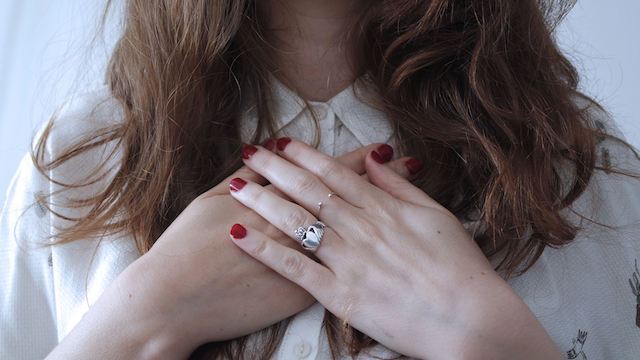
It took me becoming a therapist to realize I was the one who needed therapy.
I landed in a mindfulness-based psychotherapy program, ultimately, because I had been very unkind to myself.
As a result, when people ask me what approach I use in my own work as a therapist, I lead with the response, “I practice kindness.”
Based on conversations with my own therapist, I now see a nutritionist to heal my pattern of disordered eating. Seeing a nutritionist, practicing yoga, and being mindful are all ways I’ve learned to be kind to my body since I started seeking professional support.
As a part of my nutrition plan, I eat two KIND Bars a day from my local Philadelphian 24-hour supermarket. I honestly picked these over other healthy snack bars because I thought it was cool to eat “kindness.” I make sure each has at least five grams of protein and no more than five grams of sugar.
While checking the label to verify if the brand’s new caramel almond pumpkin spice flavor met my sugar and protein requirements, I read over more than just the brand name.
The label said, “Do the kind thing for your body, your taste buds, and your world.”
“Perfect,” I thought to myself, “How consistent with my goals! Food with a philosophy, I dig it.”
I remember one day I was eating a KIND Bar and headed to see my therapist on my lunch break when this thought dawned on me: “Kind” is the root of a noun, adjective, and verb—each reflecting the different ways we depend on kindness to thrive. This isn’t the first time I contemplated kindness, but for whatever reason it really hit me in that moment.
My senior thesis in college was entitled, “Codes of Conduct,” wherein I explored common themes across several major religions and compared them to the National Association of Social Worker’s Code of Ethics. My primary finding? Kindness is universal.
More specifically, I found that all major religions and social work have common teachings, sharing messages of love, compassion, acceptance, and self-discipline.
Though I generally never cease trying to be kind, I realized I didn’t actively practice these values with myself until about a year ago.
I found it hypocritical to engage in helping my clients find self-kindness when I didn’t participate in the practice myself. Through this intention to “walk my talk,” I learned the difference between kindness as a concept and kindness as a true lifestyle.
I quickly learned that the best and most important way I could help others was helping myself. This was a turning point for me. This is when I authentically showed up to my therapy sessions, on a path of cultivating loving-kindness and compassion for myself and everyone who sought my counsel.
Only my husband, my mentor, and my therapist—three individuals whose practices of kindness I admire—knew the extent of my self-depreciation, my negative self-talk, and my distorted thinking. I think it’s important now to share my unkind feelings that drove me to therapy, as a way to normalize and destigmatize the pain and suffering that we cause ourselves.
So here’s the honest truth about how I felt about myself on a day-to-day basis:
My feelings of pain and suffering, most of which I wasn’t even aware of, were consuming me. I couldn’t be kissed, caressed, hugged, spoken to, or looked at without feeling suspicious, or worse, triggered.
Any compliment I received felt like a lie, and any criticism—however constructive—I internalized as a feeling of worthlessness. Blind to the fact that these feelings were protections I developed to cope with my traumatic, abusive, and unkind past, I barricaded my heart from the world until I became too lonely to bear it anymore.
Just as Pema Chodron described in When Things Fall Apart, I protected myself from pain, but that “protection became like armor, like armor that imprisoned the softness of [my] heart.”
I know I’m not the only person who felt this way, and there are moments where I’m still guarded and overly protected. But that’s ok. I’m working on it, with kindness of course.
So in my own effort to be kinder to myself, I ask this: Let’s remember to be kind to each other, our planet, and especially ourselves, as we bravely journey through life. Let’s be open to integrating professional help, and remember we’re all on this journey together.
And just in case you were wondering, no, the caramel almond pumpkin spice KIND Bar didn’t meet my requirements. It only has four grams of protein. I’ll probably eat it though, on my way to see my therapist.
Because sometimes a treat is the kindest thing to do.
~
~
~
Author: Genevieve Gellert-Ilg
Image: Guilla Bertelli / Unsplash
Editor: Danielle Beutell










Read 0 comments and reply